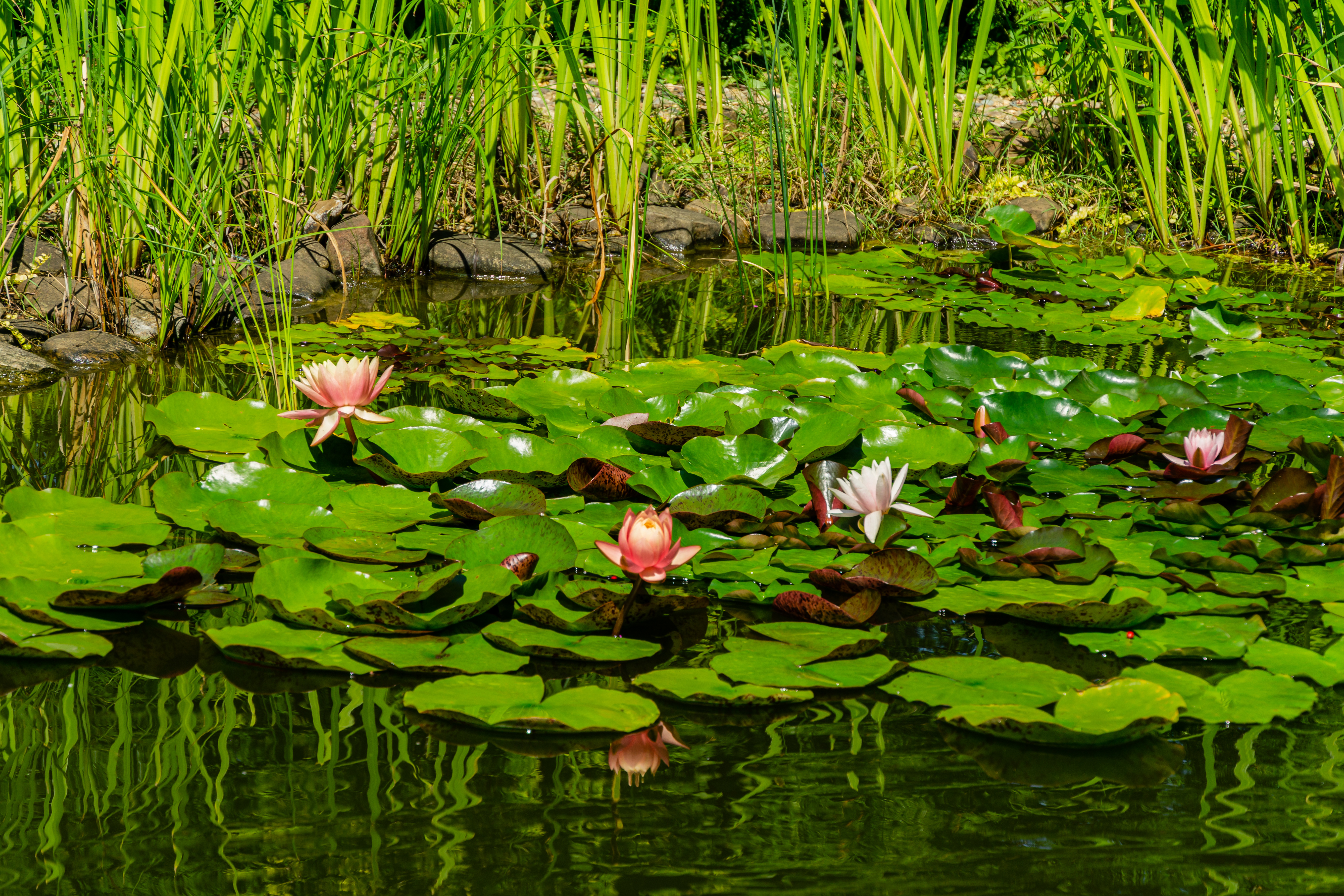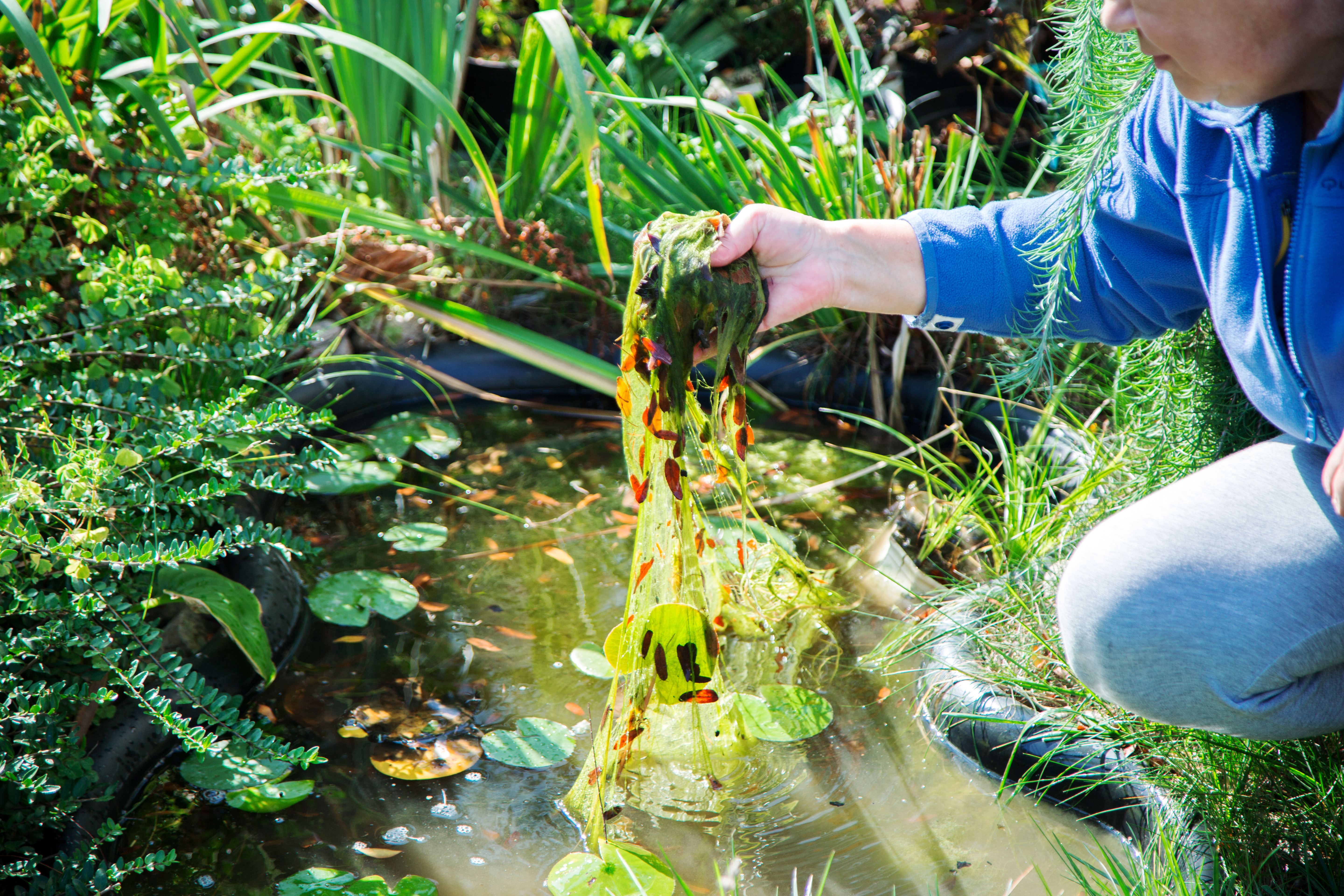Top tips for summer pond maintenance -keep your pond clear, healthy, and thriving all season long
Summer is the season when your garden pond truly comes to life — lush plants, active fish, and long, sunny days make it a highlight of your outdoor space. But with rising temperatures and increased biological activity, summer also brings a unique set of challenges for pond owners. Algae growth, oxygen fluctuations, and evaporation can all affect the health of your pond if not managed properly.

Here are our top tips for keeping your pond in top condition throughout the summer months:
1. Monitor Water Temperature
Warm water holds less oxygen, which can stress fish and other aquatic life. Once water temperatures rise above 21°C (70°F), your pond’s oxygen levels can drop significantly, especially overnight in planted ponds or those with significant algae growth.
Tip:
1. Install a floating thermometer and monitor temperature regularly
2. Ensure adequate surface movement using fountains, waterfalls, or air pumps [link to product category page]
3. Add aquatic plants for shade and natural cooling. Floating plants are ideal for this [images and link to pond plant databank]
2. Improve Aeration
Oxygen is crucial during summer, especially at night when plants consume oxygen instead of producing it. Poor oxygenation is a common cause of fish distress or even loss.
Tip:
- Use air stones or aeration kits to keep oxygen levels stable
- Run pumps and filters 24/7 during heatwaves
- Avoid overcrowding to reduce oxygen demand
3. Keep Algae in Check

Warm weather and sunlight encourage algae growth, especially blanket weed and green water. While some algae is natural, excessive blooms can block light, reduce oxygen, and spoil the pond’s appearance.
Tip:
- Remove debris and excess algae manually
- Use UV clarifiers to prevent green water
- Consider algae-reducing treatments or barley straw
- Avoid overfeeding fish — uneaten food fuels algae growth
4. Top Up Water Carefully
Evaporation can significantly reduce water levels in summer, especially in shallow or exposed ponds. When topping up, it’s important to treat tap water to remove chlorine and chloramine, which are harmful to fish.
Tip:
1. Use a dechlorinator with every water top-up.
2. Top up with small amounts regularly, rather than large amounts all at once
3. Collect rainwater in a butt (if clean and free from contaminants) but make sure mineral content remains high enough in the pond if fishes are present.
5. Clean Filters and Pumps
Your pond’s filtration system works harder during summer due to increased fish waste, plant material, and algae. Clogged filters reduce efficiency and water clarity at a time when oxygen levels are at their lowest.
Tip:
1. Check and clean filter sponges, impellers, and pump inlets weekly
2. Avoid using tap water to clean biological media (use pond water instead)
3. Consider upgrading filter media or using a bacterial booster to aid breakdown of waste
6. Feed Fish Wisely
Fish are more active in warm weather and will need regular feeding, but too much food leads to uneaten waste and poor water quality.
Tip:
1. Feed only what your fish can eat in 2–3 minutes
2. Choose high-quality, easily digestible summer fish food
3. Feed little and often to encourage your fish to be as friendly as possible
7. Prune and Maintain Plants
Plants provide valuable shade and help absorb excess nutrients, but overgrown vegetation can block pumps and reduce circulation.
Tip:
1. Trim back fast-growing marginals and floating plants if necessary to ensure some open water is available (water hyacinth remains illegal!)
2. Remove dead leaves or flowers before they sink and rot
3. Thin submerged oxygenators if they’re crowding the pond and remember that they can drastically lower oxygen levels at night despite their name
8. Test Your Water
Water chemistry can shift quickly in summer. Testing helps catch problems early, especially ammonia, nitrite, KH and pH imbalances.
Tip:
1. Use a reliable pond water test kit every 1–2 weeks
2. Test after heatwaves, storms, or when topping up with tap water
3. Monitor Carbonate Hardness (KH) if you live in a softwater area or use rainwater. Heavy rainfall can also lower mineral content and cause problems for fish
4. Keep a small water change kit or emergency treatment on hand
Bonus Tip: Prepare for Holidays
Heading away? Make sure your pond can cope in your absence.
Tip:
- Ask a friend or neighbour to check the pond
- Install an automatic feeder (test it first!)
- Leave clear written instructions and your contact details
- Top up and clean filters before you go
Final Thoughts
With a little extra attention during the warmer months, your pond can remain clear, well-balanced, and beautiful all summer long. Staying on top of temperature, water quality, and basic maintenance will not only benefit your fish and plants but also give you more time to enjoy the peaceful, relaxing atmosphere your pond creates.
Need supplies or expert advice?
Whether you need aeration kits, pond food, test kits, or algae control solutions, we’ve got you covered.
Shop our full pond care range or visit your local store for specific advice about looking after your pond.



